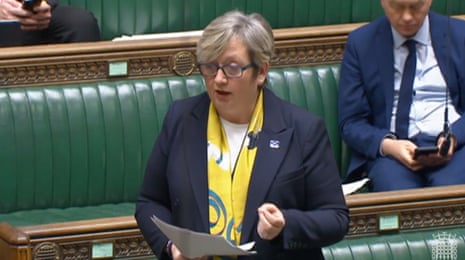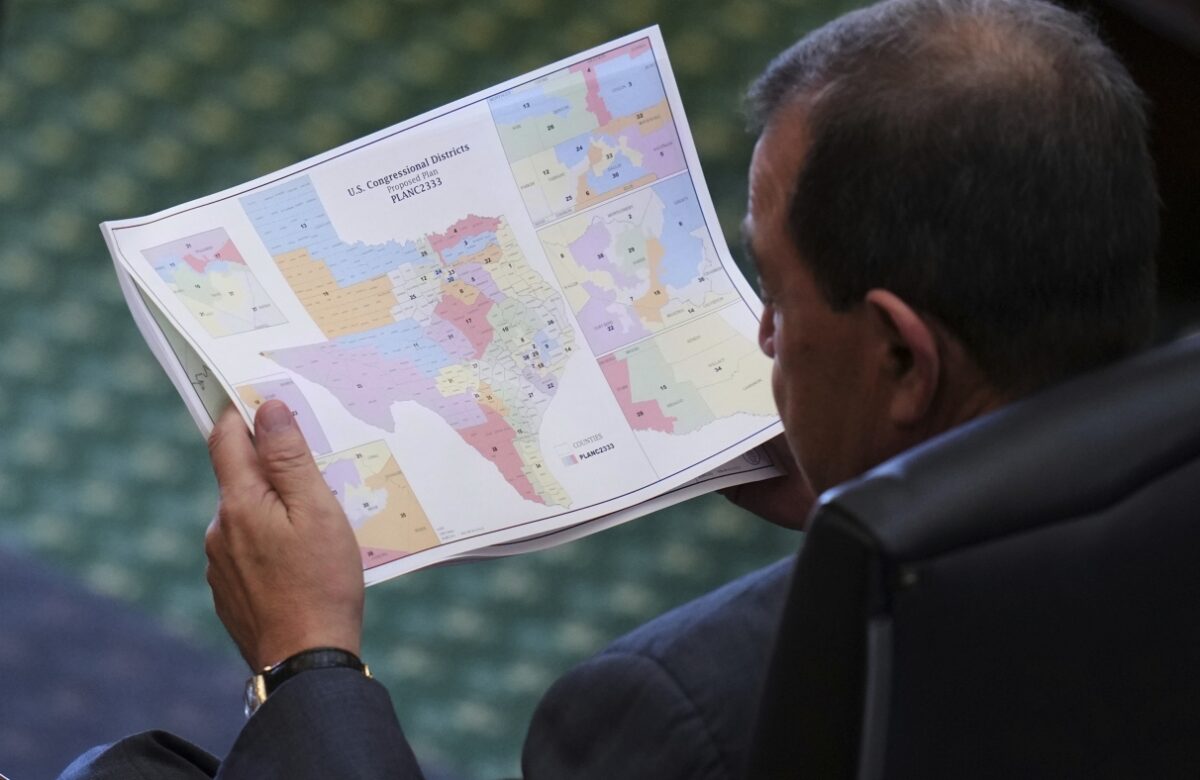Rwanda bill vote: Tory rebels have not shown amendments are legally robust, No 10 says – live | Politics
- Politics
- January 17, 2024
- No Comment
- 193
Tory rebels have not shown us their legal advice saying their amendments legally robust, No 10 says

Peter Walker
Downing Street was not shown the legal basis for rebel amendments on the Rwanda bill despite this being offered and asked for, Rishi Sunak’s press secretary has said, in another sign of No 10’s apparent exasperation with the MPs behind the plans.
Downing Street had said it would look carefully at any amendments which would not breach the terms of the deal with Rwanda, and which had legal opinions setting out how this would be the case.
MPs seeking to change the bill, such as the former immigration minister Robert Jenrick, insisted that they had this.
But asked if No 10 had been able to see the legal advice, the PM’s press secretary told journalists at the post-PMQs lobby briefing.
We asked to see last week, and they said that they’d be happy to share it. And I understand that we have since asked to see it every day, and we haven’t received it.
Asked what conclusions should be drawn from this, she added: “I will let you draw your own conclusions.”
Key events
Cameron denies Rwanda bill makes UK an embarrassment on world stage during Q&A at Davos
David Cameron has rejected suggestions that the controversy about the Rwanda bill is embarrassing for the UK on the world stage.
When this was put to him at a panel at Davos, the foreign secretary replied: “Quite the contrary.”
He said countries around the world were having to find a way of dealing with illegal migration and that, although Britain’s approach was “quite unorthodox in some ways”, out-of-the-box thinking like this was necessary to break the model of this “appalling people smuggling”.
Graeme Wearden has more on this here on his business live blog.

UK government says it’s seeking costs from Scottish government to pay legal fees from gender bill challenge
The UK government will try to get the Scottish government to pay the costs of its legal challenge against Scotland’s gender recognition reform bill.
In a provocative move, London vetoed the legislation from Holyrood, with a Scotland Act power never used before, on the grounds that it would intefere with UK-wide equality law.
The Scottish government challenged that decision, but last month Scotland’s highest court said the UK government was entitled to act as it did.
Today Alister Jack, the Scottish secretary, said:
The Scottish government chose to pursue this litigation in spite of the cost to the taxpayer. My legal advisers have today intimated to the Scottish government that we have started the process of seeking an award of expenses in defending the case.
Last month Jack told a Commons committee the UK government had spent £150,000 on the case.
Downing Street has insisted it is not planning to “rewrite” the civil service code, after suggestions that such a move was being considered as part of the Rwanda plan sparked a backlash from trade unions (see 11.20am), PA Media reports.
At the post-PMQs lobby briefing, asked about reports the code will be amended, the PM’s spokesperson said:
What we are looking to do is to provide further guidance so there is clarity for ministers and civil servants on the application of this.
This is simply about ensuring that civil servants act within the code.
This is simply about making sure that we’ve taken every conceivable step to ensure that we get flights off the ground as quickly as possible should the bill progress through the house, as we continue to believe it will.
The government is expected to give more details of updates to the code later this afternoon.
Kate Ferguson from the Sun on Sunday says one Tory rebel is predicting that only around five Conservatives may vote against the government at third reading.
One Tory rebel tells me they only expect a hardcore of four or five MPs to actually vote against the Rwanda Bill tonight
One Tory rebel tells me they only expect a hardcore of four or five MPs to actually vote against the Rwanda Bill tonight
— Kate Ferguson (@kateferguson4) January 17, 2024
Tory rebels have not shown us their legal advice saying their amendments legally robust, No 10 says

Peter Walker
Downing Street was not shown the legal basis for rebel amendments on the Rwanda bill despite this being offered and asked for, Rishi Sunak’s press secretary has said, in another sign of No 10’s apparent exasperation with the MPs behind the plans.
Downing Street had said it would look carefully at any amendments which would not breach the terms of the deal with Rwanda, and which had legal opinions setting out how this would be the case.
MPs seeking to change the bill, such as the former immigration minister Robert Jenrick, insisted that they had this.
But asked if No 10 had been able to see the legal advice, the PM’s press secretary told journalists at the post-PMQs lobby briefing.
We asked to see last week, and they said that they’d be happy to share it. And I understand that we have since asked to see it every day, and we haven’t received it.
Asked what conclusions should be drawn from this, she added: “I will let you draw your own conclusions.”
Tory MP calls for British troops to be deployed in France to stop small boat crossings
The Conservative MP Giles Watling has published a statement on his website suggesting he would like to see British troops deployed in northern France to stop the boats. He says:
The Home Office has demonstrated time and again that it is either unwilling or unable to grapple with the scale of the challenge facing it, and to that extent I believe it is time that it is relieved of the responsibility of policing our borders and instead the issue is handed to the Ministry of Defence. This is after all a defence of the realm matter and we need British boots on the ground.
Our borders must be stronger, and in order to achieve that we must explore negotiating with our continental neighbours, pointing out that they would regain control of their overrun towns from Dunkirk to Boulogne if they allow that, in addition to the people we already have in their command and control centres, we put British boots on the ground in northern France to assist their efforts.
The statement says Watling will be supporting the government in votes on the bill – even though he does not think the legislation goes far enough and believes “it will not ultimately succeed in full”. Even with the amendments proposed by Tory MPs, it would not go far enough, Watling says – which (rather confusingly) he cites as a reason for not supporting the amendments.
Sir Bob Neill, chair of the Commons justice committee, tells the Commons that he thinks the amendments attacking the European court of human rights’s use of injunctions are misplaced. He points out that the court is already reforming the way those injunctions operate.
And he criticises colleagues who have described it as a foreign court. He says it’s international. It is not an alien body, but one over which the UK has joint ownership, he says.
UPDATE: Neill said:
The amendments moved by [Robert Jenrick] are otiose, they are unnecessary, and frankly they make what is a difficult situation worse.
I personally take the view that you should be very loath indeed to ignore the findings of the [European court of human rights] on an interim matter, and it does run the risk … of placing you in breach of your international law obligation in that regard. But the truth is it’s a political decision.
Frankly if any Government wants to take the political risk of ignoring an interim measure it can under our law as it stands.
Joanna Cherry from the SNP is up now. The SNP has attacked the Rwanda policy particularly strongly, and she says there are no polls in Scotland showing support for the policy. But she is mostly talking about legal principle, and she says the bill is anathema to the Scottish legal tradition.
Some Tories have defended the Rwanda policy, despite what international law says, on the grounds that parliament is supreme.
But Cherry says the principle of unlimited sovereignty of parliament is an English principle, with no counterpart in Scottish law. In Scotland sovereignty lies with the people, and there is an acceptance that executive power should not go unchecked. She says this goes back as far as the Declaration of Arbroath.
Cherry has put her name to six amendments to the bill (two with fellow SNP MP Patrick Grady, four of her own) and she says these are designed to ensure that the bill does not apply to Scotland, and that Scottish asylum seekers continue to enjoy the same fundamental rights as other people.

Former Tory attorney general expresses concern Rwanda bill would let UK decide for itself if it’s breaking international law
Sir Jeremy Wright, the Conservative former culture secretary, who was also attorney general between 2014 and 2018, has tabled two amendments to the bill and he is speaking now.
He says his amendments would remove from the bill passages that imply parliament has the right to decide whether or not the UK is in compliance with international law.
He says it would be a mistake for the government to imply that international law does not matter. He points out that only two days ago the government was justifying the airstrikes against the Houthis on the grounds that their attacks on shipping were against international law. And he says the UK would not want to leave it up to the Houthis to decide whether or not they were complying with international law.

Jenrick says UK’s continuing membership of European convention on human rights not sustainable
In his speech opening the debate Robert Jenrick, the former immigration minister, said:
I don’t believe that our membership of the European convention on human rights is sustainable.
But he said that was an argument for another day, and he said his amendments were not about leaving the convention.
Rwanda president: efforts to implement asylum plan cannot ‘drag on’
Here is our story about the comments from Paul Kagame, the president of Rwanda. (See 1.11pm.)
And this is how it starts.
Rwanda’s president has said there are limits to how long attempts to implement an asylum deal with Britain can “drag on”, adding that he would be happy for the scheme to be scrapped.
Paul Kagame’s comments to the Guardian in Davos on Wednesday came before Rishi Sunak faced a potentially leadership-ending rebellion by Conservative MPs threatening to vote down his Rwanda deportation bill on Wednesday night.
Asked if he was following the debate in London, Kagame said: “It is the UK’s problem, not ours.”
But in comments that are likely to set alarm bells ringing in London, Kagame went on to express frustration at the drawn-out debate about whether asylum seekers would be processed in Rwanda. “There are limits for how long this can drag on,” he said.
#Rwanda #bill #vote #Tory #rebels #shown #amendments #legally #robust #live #Politics









